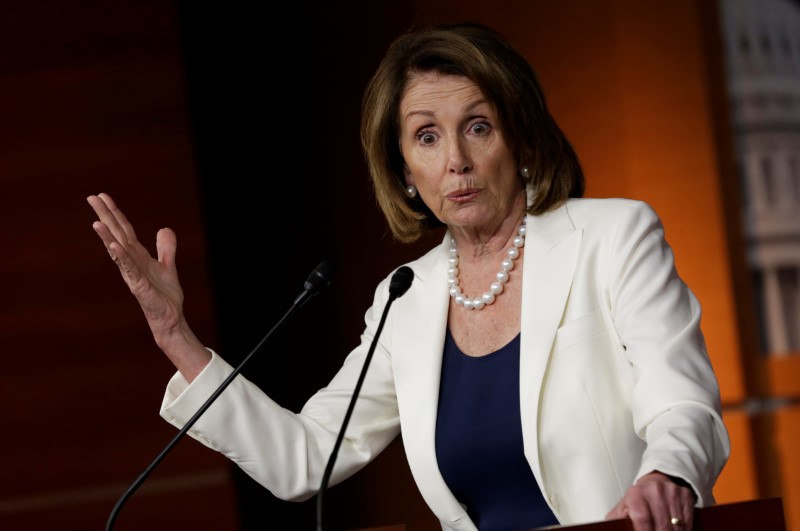By Richard Cowan and David Morgan
WASHINGTON (Reuters) - The top Democrat in the U.S. House of Representatives said on Friday Congress should promptly raise the federal debt limit, partly because Washington's tax revenues appear to be slowing on expectations of a possible tax cut to come.
The warning from House Democratic leader Nancy Pelosi echoed earlier remarks from Treasury Secretary Steven Mnuchin, who has urged Congress to raise Washington's borrowing limit before lawmakers leave for a long August recess.
"It should probably be done before we leave (at) the end of July," Pelosi told reporters in the Capitol. "Many entities in our country are thinking they're going to get a big tax break from President Trump for next year, and so the revenues are not coming in as fast this year as they should."
President Donald Trump and fellow Republicans in Congress have promised to overhaul the tax code, including slashing tax rates.
Trump’s chief economic advisor, Gary Cohn, told Fox Business News on Friday the administration will deliver a tax plan to Congress after the August recess.
In view of promises like this that the administration has been making for months, some analysts have speculated that companies and wealthy Americans may be shifting income into 2018 in expectation of a coming tax cut.
A May 5 report by the nonpartisan Congressional Budget Office said government tax receipts for early 2017 were 3 percent lower than expected, due to smaller-than-anticipated payments from individuals and corporations. The CBO said this could be due in part to shifting of income to later years in hopes of taking advantage of a future tax cut.
The U.S. government periodically raises the legal limit of how much money it can borrow to cover its budget deficit. Washington spends more money than it takes in from taxes. The hike must be approved by Congress, a decision that in recent years has been fraught with political drama.
In early March, the Treasury Department began implementing cash management measures to stave off hitting the existing debt limit. Those efforts were expected to be exhausted by October or November, but the latest data suggest that could happen sooner.

In 2011, the United States came close to what would have been a historic default as Republicans withheld their support for a debt limit increase in order to win deep budget cuts.